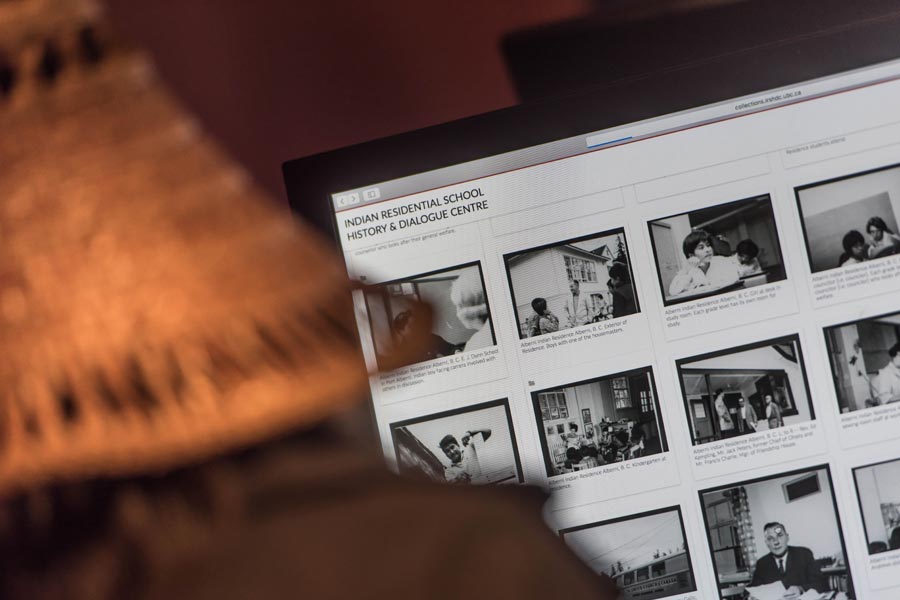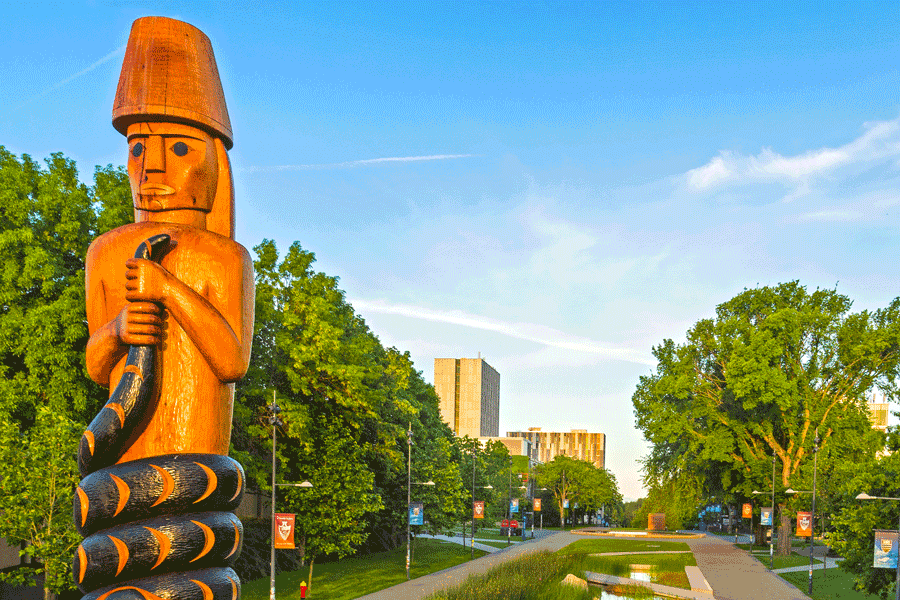Featured Post
- Turning Sideways Toward Truth: A Statement from the Indian Residential School History and Dialogue CentreEvents unfolding at another B.C. campus over the past week have brought renewed attention to a familiar tactic: attempts to provoke controversy around the history of residential schools in order to draw Indigenous communities and institutions into an exhausting cycle of reaction.

OUR CHILDREN, OUR FUTURE: THE INDIAN CHILD CARAVAN 45 YEARS LATER
Visit the Digital Collection
The Indian Child Caravan was a province-wide movement that led to a demonstration in Vancouver over the Thanksgiving weekend of October 9-13, 1980. The Caravan marked the successful negotiation of A By-Law For The Care Of Our Indian Children: Spallumcheen Indian Band By-Law #3 — 1980 (often known as the Spallumcheen By-law). This unprecedented by-law restored jurisdiction over child welfare to the Splatsin (formerly known by the anglicized term “Spallumcheen”) community.
To mark the 45th anniversary of the Indian Child Caravan, the Splatsin community, the Union of British Columbia Indian Chiefs (UBCIC) and the IRSHDC came together to celebrate the impacts of the Indian Child Caravan and to uplift the work of Indigenous youth, families, and communities to create better futures for the people they care about.
The digital collection is accessible via our Collections site, which can be accessed at the link below.
Latest News
- Job Posting: IRSHDC DirectorWe are hiring! Find the internal job posting here, and the external posting here. The job requisition number is JR23041 Director, Indian Residential School History and Dialogue Centre. Apply by January 11, 2026.
- Turning Sideways Toward Truth: A Statement from the Indian Residential School History and Dialogue CentreEvents unfolding at another B.C. campus over the past week have brought renewed attention to a familiar tactic: attempts to provoke controversy around the history of residential schools in order to draw Indigenous communities and institutions into an exhausting cycle of reaction.
- Statement Regarding Recent Findings at St. Augustine’s and Kuper Island Indian Residential SchoolsThe Indian Residential School History and Dialogue Centre (IRSHDC) extends our deepest condolences and support to the Shíshálh Nation and to the Penelakut Tribe following their recent announcements regarding unmarked graves at the sites of the former St. Augustine’s Indian Residential School (also known as Sechelt Residential School) and the Kuper Island Indian Residential School. We are… Read more: Statement Regarding Recent Findings at St. Augustine’s and Kuper Island Indian Residential Schools
- Professor Johnny Mack appointed as Academic Director at the Indian Residential School History and Dialogue Centre Professor Johnny Mack has been appointed Academic Director at the Indian Residential School History and Dialogue Centre (IRSHDC), effective May 1, 2025, for a three-year term. Situated at the intersection of academic inquiry, historical truth-telling, and community engagement, the IRSHDC plays a vital role in advancing UBC’s academic mission by… Read more: Professor Johnny Mack appointed as Academic Director at the Indian Residential School History and Dialogue Centre
- Statement from the Indian Residential School History and Dialogue CentreThe history of the Indian Residential School system in Canada is not a matter of opinion or debate. The documented facts – including Survivor testimonies, government and church records and physical evidence of unmarked burials – are well-established and publicly accessible. These facts have been acknowledged by federal and provincial… Read more: Statement from the Indian Residential School History and Dialogue Centre

The records offer diverse perspectives (former students, officials, journalists, scholars) and include Survivor testimonies, Truth and Reconciliation Commission hearings, photographs, maps, government documents, church documents, and newspaper articles.
Responding to Survivors’ desire to have a single point of access to residential school records, the Centre provides access to an online database containing digital copies of records from partner organizations. This single access point brings together records that are otherwise dispersed online and in physical spaces.

The Centre is located on the traditional, ancestral, unceded territory of the hən̓q̓əmin̓əm̓ speaking xʷməθkʷəy̓əm (Musqueam people). We are privileged to work with the Musqueam First Nation and the Musqueam Archives as community partners.
Connect with the Centre through social media


